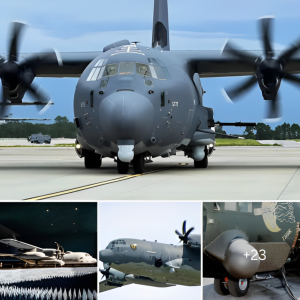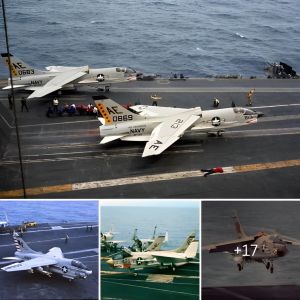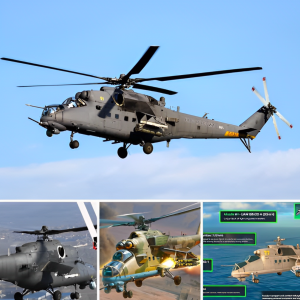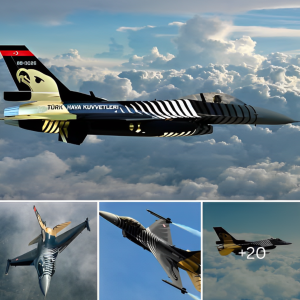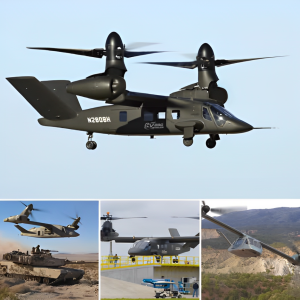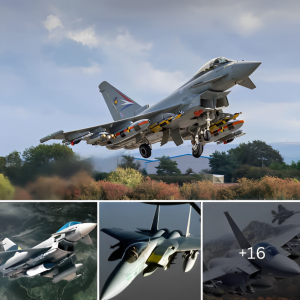We are constantly on the lookout for more details about the U.S. military’s highly elusive stealthy Black Hawk helicopters, one of which famously crashed during the raid that led to the death of Al Qaeda leader Osama Bin Laden in 2011, as well as any possible predecessors that predated them. Now, what appears to be a previously unpublished picture has come to our attention that shows a heavily modified EH-60 electronic warfare and signals intelligence variant of the Black Hawk. Is seems to be, at the very least, one of the missing links connecting the unique Black Hawk helicopters used on the Bin Laden raid and stealthy Black Hawk design concepts dating back to the 1970s.
It is our understanding that the picture in question seen at the top of this story and again below in a slightly enhanced manner, has a relation to Fort Eustis in Virginia. In addition to being home to 128th Aviation Brigade, previously known as the U.S. Army Aviation Logistics School, Fort Eustis’ Felker Army Airfield it also hosts a unit commonly known as the Flight Concepts Division (FCD), that is now called the Aviation Technology Office (ATO). This is the unit understood to be responsible for leading the development of the stealth Black Hawks used during the Bin Laden raid and many of the U.S. Army’s most advanced and secretive rotary-wing capabilities.
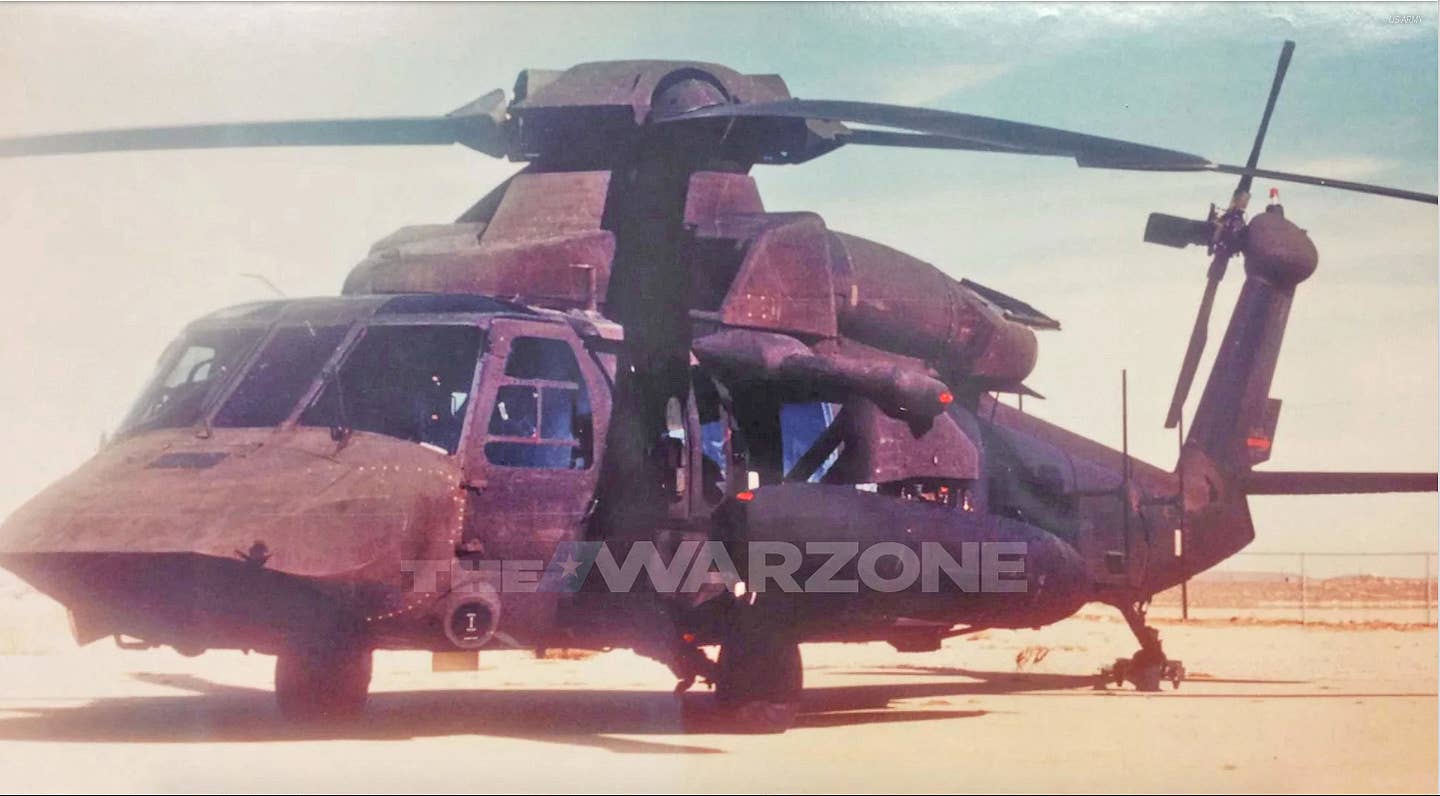
The picture is undated and we have no immediate information about any program or programs the helicopter might have been associated with. The location where it was taken is also unknown, but is a desert locale that could indicate it was shot somewhere in the American southwest, which is home to a number of aviation test facilities, including top-secret air bases, such as Area 51 and the Tonopah Test Range Airport. The stealthy Black Hawks used in the Bin Laden raid were housed at the former, according to reports.
The Bin Laden raid Black Hawks were said to be based on the special operations MH-60 airframe. However, the helicopter seen in the photo is clearly a heavily modified Sikorsky EH-60 variant, though it’s not clear if it is an EH-60A or EH-60L version. Both of these helicopters carried versions of the AN/ALQ-151 Quick Fix system, which was capable of both intercepting hostile electronic emissions and providing direction-finding information to locate the source, as well as electronic warfare jamming. The EH-60A carried the AN/ALQ-151(V)2 Quick Fix II system, while the EH-60L was equipped with the more capable AN/ALQ-151(V)3 Advanced Quick Fix suite.
The helicopter has the four dipole antennas, two on each side of the tail boom, found on both the EH-60A and EH-60L. Under the fuselage, it appears to have the long, retractable whip antenna found on the EH-60A, versus the more robust antenna system found on the EH-60L. This ventral antenna is associated with of the AN/ALQ-17A(V)2 Trafficjam communications jamming system, which is part of the larger Quick Fix II suite.
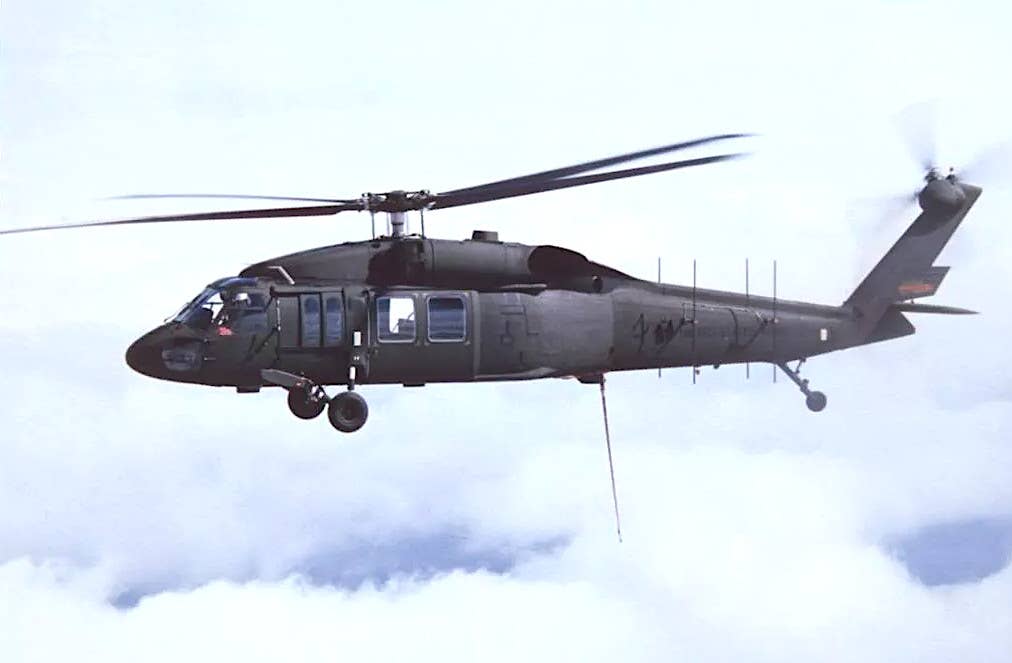
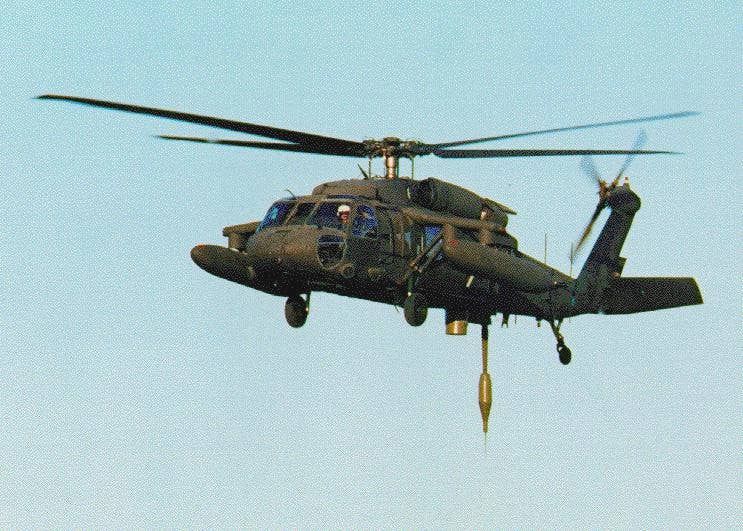
It also has two large missile approach warning sensors, one on each side of the nose under the main cockpit doors, which are part of the AN/ALQ-156A Missile Approach Warning System (MAWS) found on EH-60As and EH-60Ls. Two identical sensors were also mounted well behind the fuselage doors on this system, providing the Black Hawk with 360-degree coverage. The EH-60s were eventually equipped with a version of the AN/APR-39 radar warning system, as were other Black Hawks, which includes smaller receivers on the nose and tail of the helicopter.
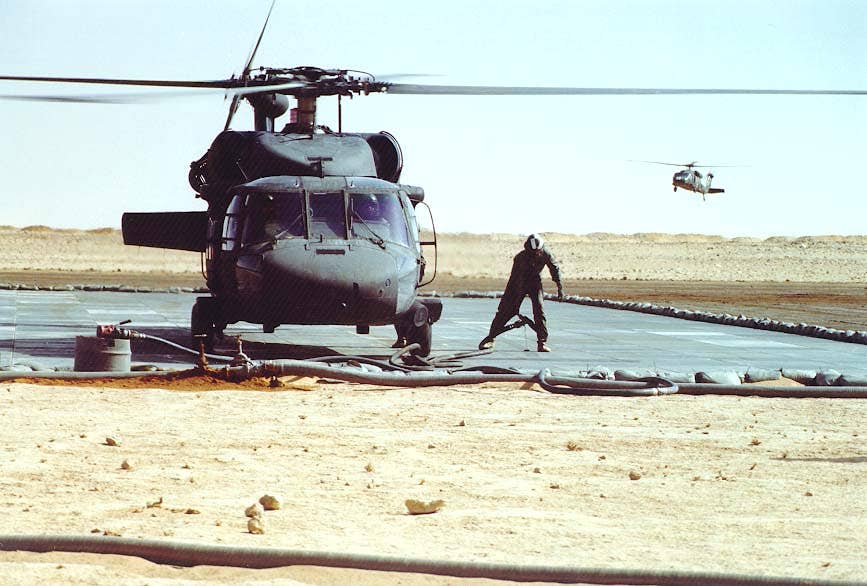
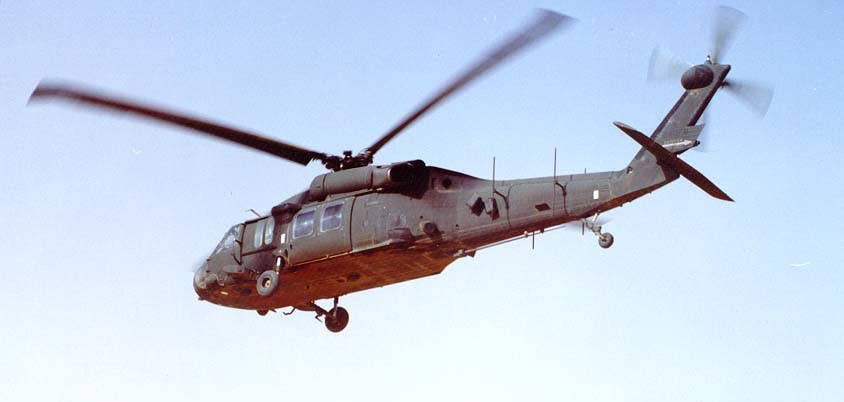
Interestingly, it also has stub wings, which provide one hardpoint on each side of the helicopter. These are more commonly associated with MH-60L/M Direct Action Penetrators assigned to the Army’s elite 160th Special Operations Aviation Regiment, as well as U.S. Navy MH-60S Seahawks. The External Stores Support System (ESSS) wing kit, which has two hardpoints on each side of the helicopter and was used on the EH-60L, is far more common.
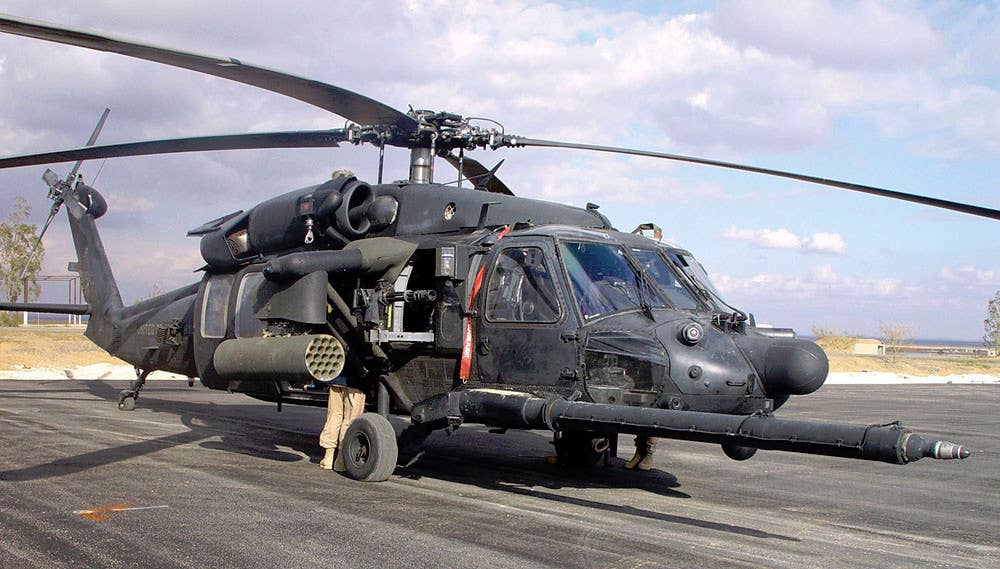
The helicopter’s most notable features are, of course, the extreme modifications to the nose, the “doghouse” where the engines and main gearbox are situated, as well as the engine intakes and exhausts. It also has a heavily modified rotor hub. All of these features appear to be designed to reduce its radar signature, especially from the critical forward hemisphere aspect.
The duckbill-like nose is reminiscent in many ways of stealthy design concepts that Sikorsky crafted in 1978 for the U.S. Army Research and Technology Laboratory, a unit at Fort Eustis. This extensive study was the first indication of the Army’s interest in a reduced signature Black Hawk. You can read all about it in this previous War Zone feature.
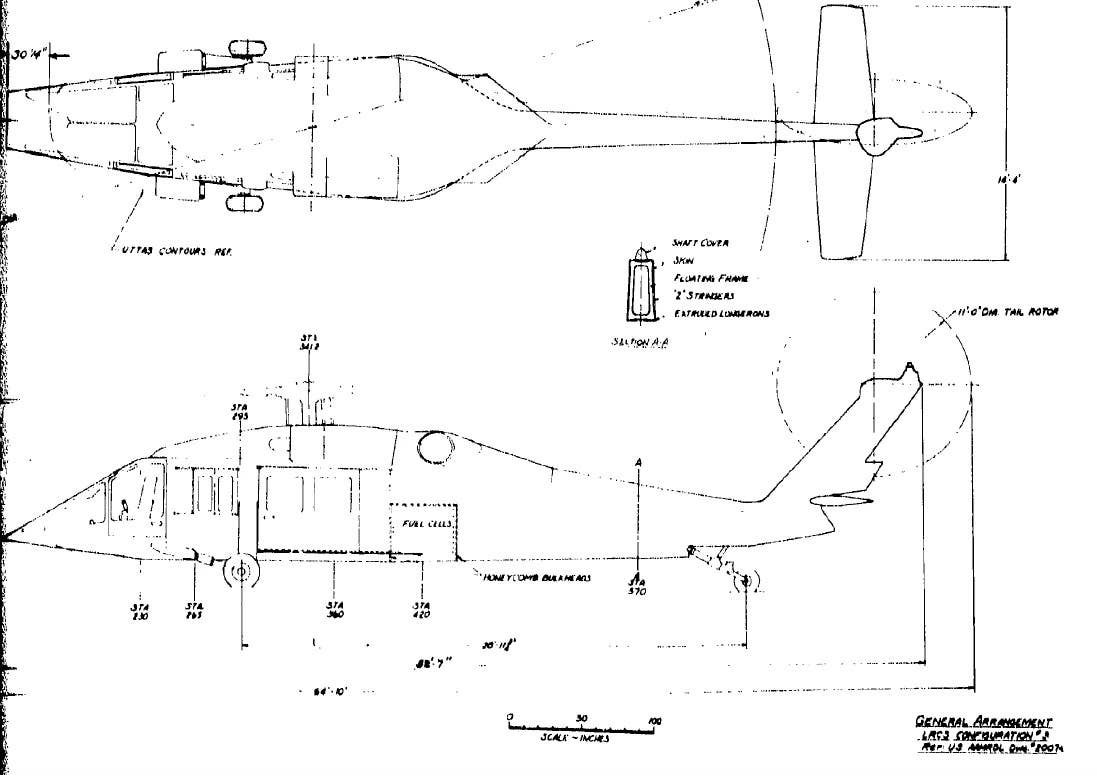
In addition, the nose, as well as the doghouse and rotor hub, all have some visual similarities to a kit that Bell developed for the OH-58X Kiowa in the 1980s. We also detailed this little known about Kiowa stealth upgrade in this past War Zone feature. The Army evaluated, but did not adopt the OH-58X en masse, though it did buy a number of the stealthy kits for use with its OH-58D Kiowa Warrior armed scout helicopters.
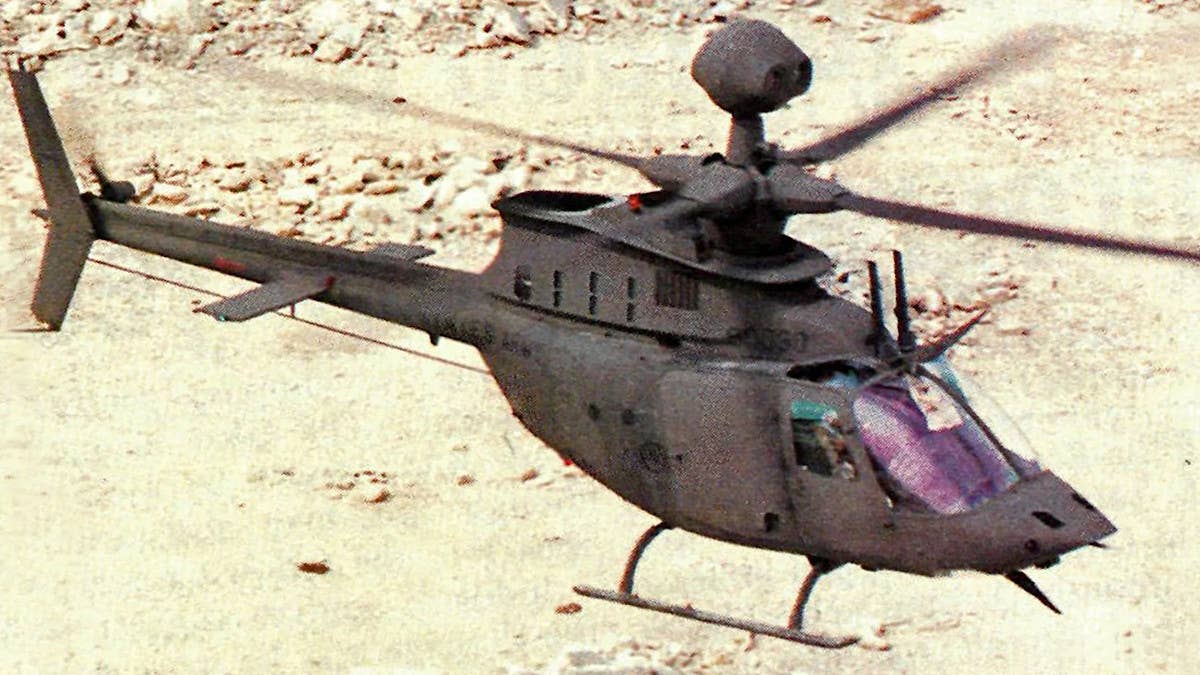
Sikorsky had proposed using advanced radar-absorbing composite materials as part of its stealthy Black Hawk design studies in the late 1970s and Bell incorporated similar concepts into its OH-58X. Sikorsky also experimented with its S-75 technology demonstrator during the mid-1980s, which made heavy use of composites and informed the development of the abortive Boeing-Sikorsky RAH-66 Comanche. The Comanche also featured a complex shrouded rotor hub design similar to this particular Black Hawk. It is almost certain that many, if not most of the additions to this EH-60 were also made of composites to help improve with radar signature reduction and limit the additional weight added to the helicopter when installed.
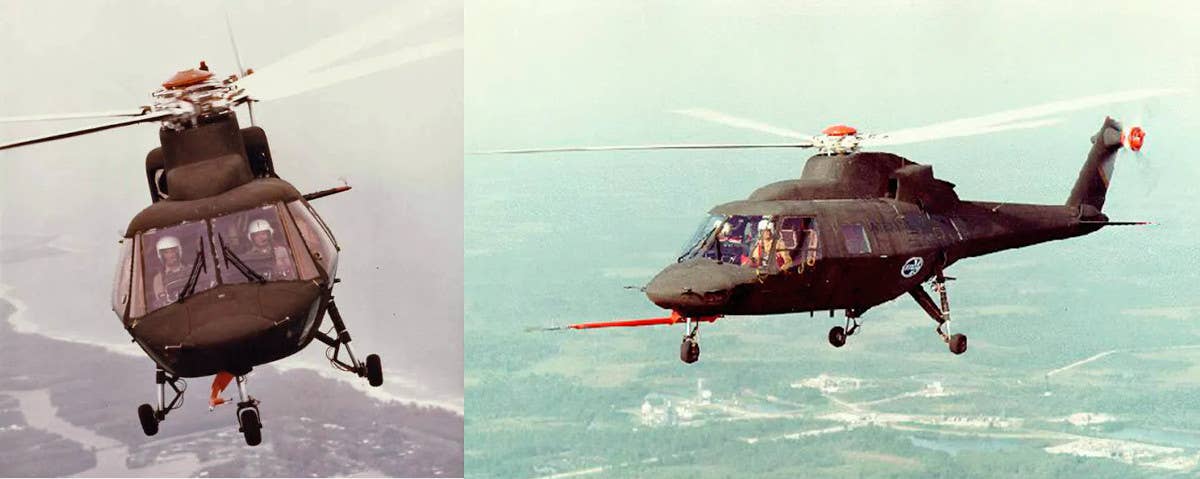
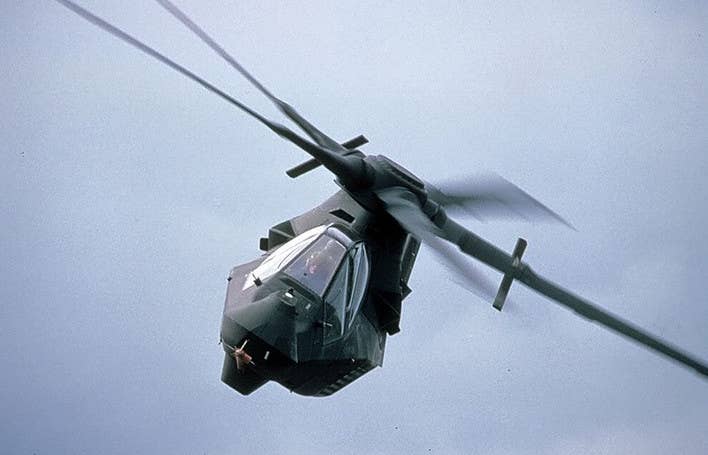
It’s also worth noting that the modified engine intakes on this Black Hawk appear to help conceal the fan faces of its two turbine engines and dramatically clean up the area around the engine nacelles and forward doghouse area. These are all features that traditionally have a high degree of radar reflectivity.
Later model UH-60As and UH-60Ls, as well as other H-60 variants based on those versions, also have infrared reduction fairings over their exhausts that have an opening at the front that allows cool air to pass through. On the aircraft in question, this area has been screened-over likely with a radar attenuating mesh.
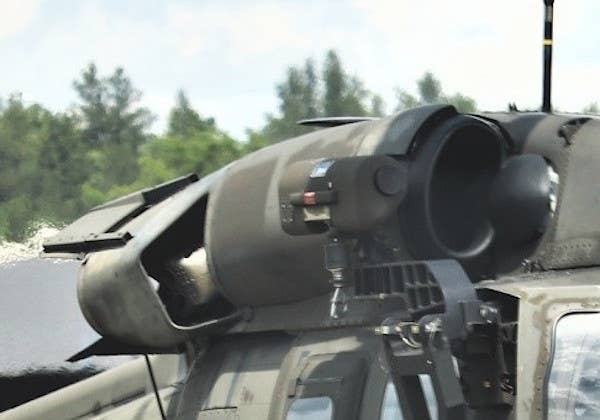
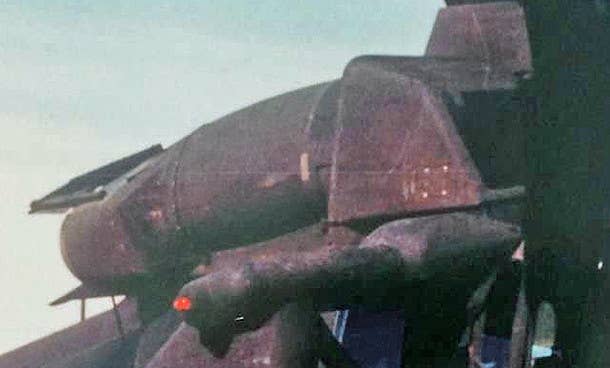
Unlike the helicopters used in the Bin Laden raid, this particular example has no modifications to its tail rotor, which would have negatively impacted its all-aspect radar reflectivity and especially its acoustic signature. However, the radar reflectivity of the helicopter’s front aspect would have been the most pressing concern when it comes to RF stealth, especially when penetrating into heavily defended areas. We also don’t know whether additional stealthy add-ons, especially for the tail, were developed later for this project or were otherwise not fitted in this particular instance.
Without knowing the particular variant of EH-60, it is especially hard to try to determine the date of this photograph. Sikorsky began developing the EH-60A for the Army in 1980 after the service decided against fielding the Quick Fix II system on a variant of the venerable Bell Huey helicopter known as the EH-1X. The EH-60As would eventually replace older EH-1H helicopters equipped with the AN/ALQ-151 and AN/ALQ-151(V)1 Quick Fix suites.
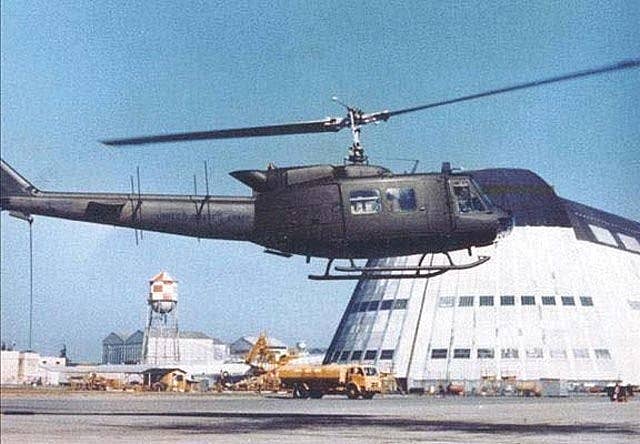
Between 1989 and 1990, work began on the Advanced Quick Fix system, which was originally supposed to go on another UH-60A variant, known as the EH-60C. The Army eventually decided to install it on a modified UH-60L, taking advantage of that variant’s more powerful engines. This became the EH-60L. This is not to be confused with EUH-60L helicopters configured as airborne command posts. The Army did not ultimately pursue the Advanced Quick Fix system, and the helicopter to go with it, on a widespread basis, a fate that befell many U.S. military programs in development right around the collapse of the Soviet Union in 1991.
Based on what we know, it is very plausible that this photograph was taken sometime in the late 1980s or more likely the 1990s. This would fit with the work Sikorsky was doing together with Boeing at that time on what would become the RAH-66, though it’s not clear how these two efforts may have been related.
The use of an EH-60, in this case, may simply have had to do with this particular helicopter being available to take part in some tests. The small EH-60 force is known to be used for various tests and modifications trials. It’s also worth noting that it has long been reported that the stealth Black Hawks employed during the Bin Laden raid had a “snap-on”-type kit, but the tail from the one that crashed has long seemed far too elaborate to be part of that kind of very temporary modification.
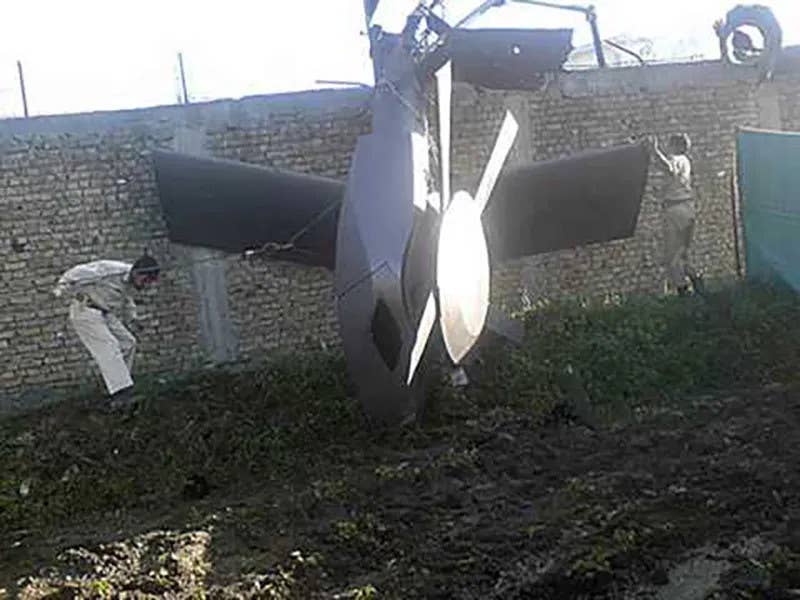
It’s possible that there might have been some confusion as to how far work on stealthy modifications to the Black Hawk had progressed by time of the historic raid. The helicopters were an extremely well-kept secret at the time, one that we would have likely never learned about if the crash hadn’t occurred. Pentagon officials could have misconstrued older tests with more basic kits with a far more elaborate configuration used on the raid.
There is also a possibility that the Army may have been interested in developing a stealthy kit for more general use on its Black Hawks and this was one rendition of such a solution. Adding these features to the EH-60 variants specifically could have been a more concerted effort, as well. A decreased radar signature could help those platforms get close to their targets without detection and then jam them, creating paths for non-stealthy helicopters, as well as fixed-wing aircraft, to follow through.
A kit that could be added and removed from any Black Hawk variant, as necessary, would have been a good way to prevent any unnecessary exposure of the capability during routine operations. Any degradation in performance would not have been permanent, either, allowing the helicopters to fly in a normal configuration the rest of the time.
Finally, we have to address the big question outstanding: could these modifications be the same as those used on the Bin Laden raid helicopters? Clearly it didn’t have anywhere near the same treatment to its tail. Could a kit exists that uses these forward elements, or very similar ones, with the addition of a far more elaborate tail assembly to reduce acoustic signature as well? That is possible, but at this point, our best guess is that this was an evolutionary stepping stone, or an earlier iteration, of what would eventually lead to the now-famous, but never seen ‘Stealth Hawks.’ Still, nobody who isn’t forbidden to discuss it on the record really knows for sure.
In the past, The War Zone has been told that the Stealth Hawks used a MH-60 for their base platform, but an outer composite body was specifically built by Sikorsky to accommodate it, making it a far more elaborate and permanent application. We still have not been able to corroborate these claims. In addition, it is stated that newer and even more complex generations of the Stealth Hawks were built following the Bin Laden raid and are in service now.
It’s amazing to think that it has been nearly a decade after the daring mission into Abbottabad went down, yet we still don’t have any additional official information about the helicopters used nor a single spotting of a similar platform. Maybe the best description of the aircraft from someone who actually took part in Operation Neptune Spear came from Robert O’Neil, who is often referred to controversially as ‘the man who killed Osama Bin Laden.’ He recounts the following in the weeks leading up to the raid:
When we got to Nevada a few days later, where the team trained on another full-scale compound model, but this one crudely fashioned from shipping containers, we turned the corner, saw the helos we’d actually use, and I started laughing. I told the guys, “The odds just changed. There’s a 90 percent chance we’ll survive.” They asked why. I said, “I didn’t know they were sending us to war on a fucking Decepticon.”
Now, thanks to this image, we finally have some hard evidence of what at least one rendition of a ‘Stealth Hawk’ actually looked like and Decepticon certainly fits the bill.
